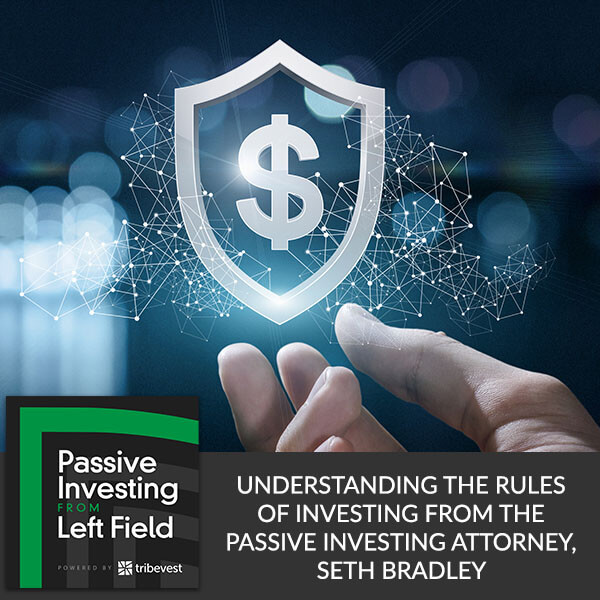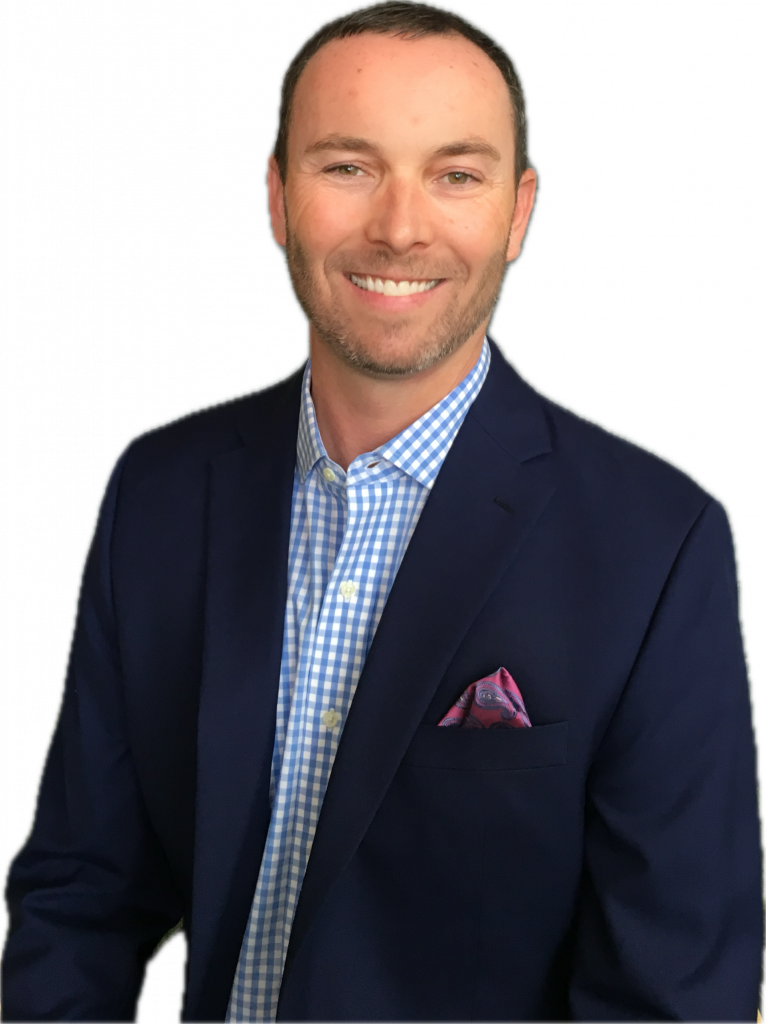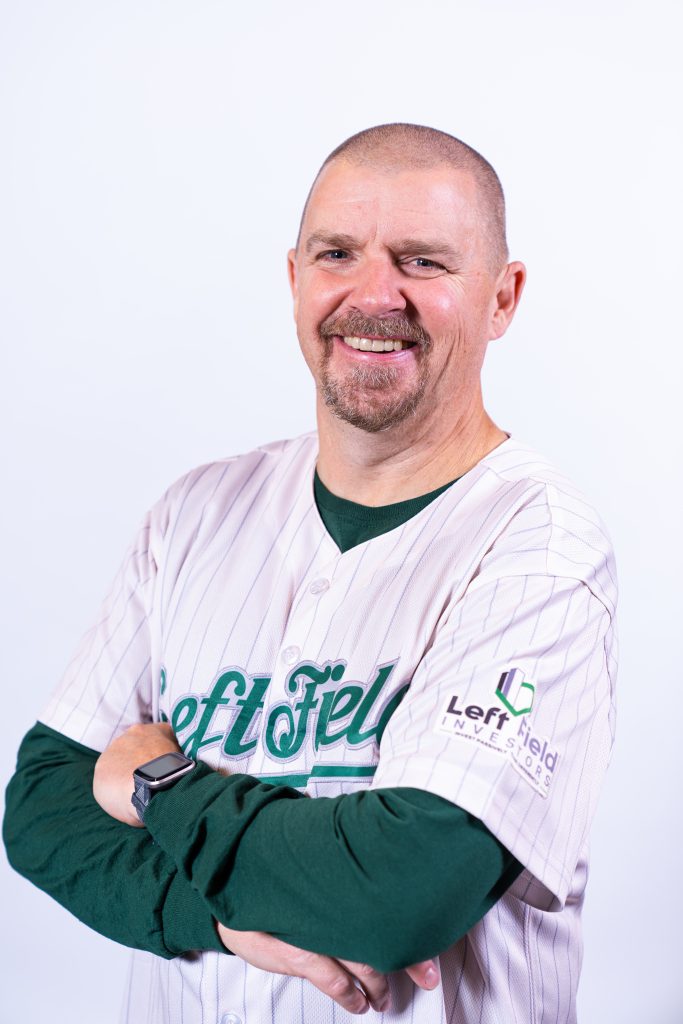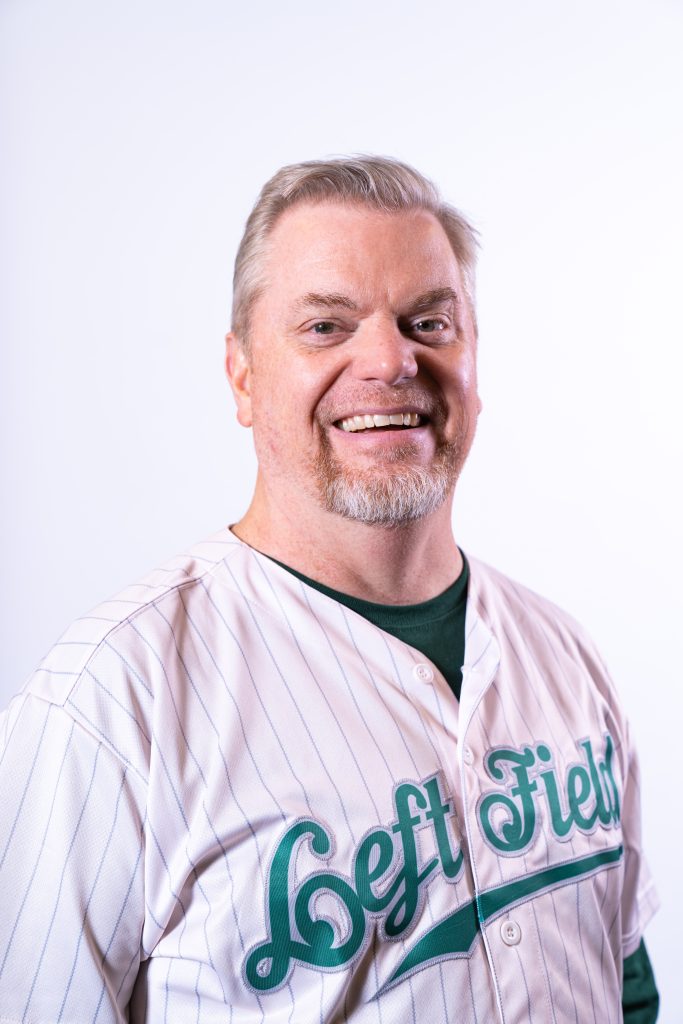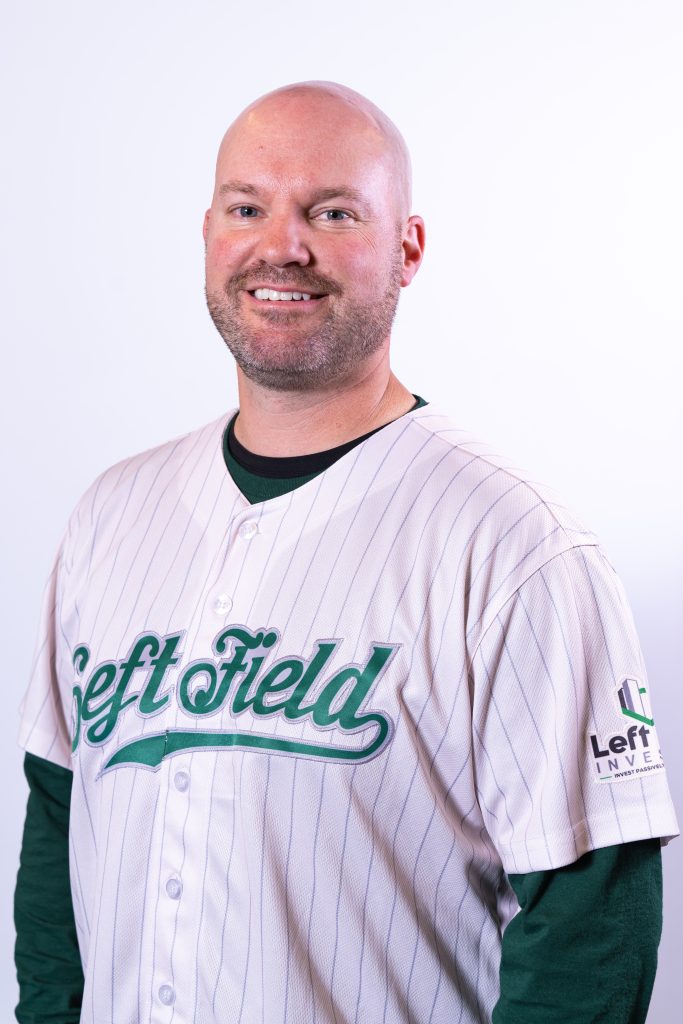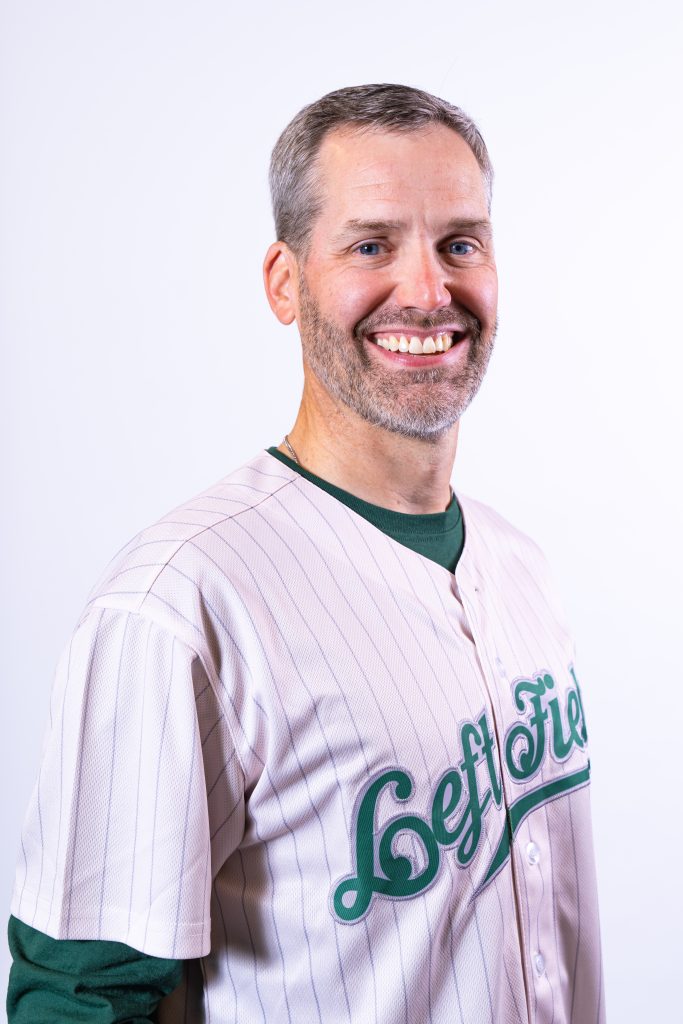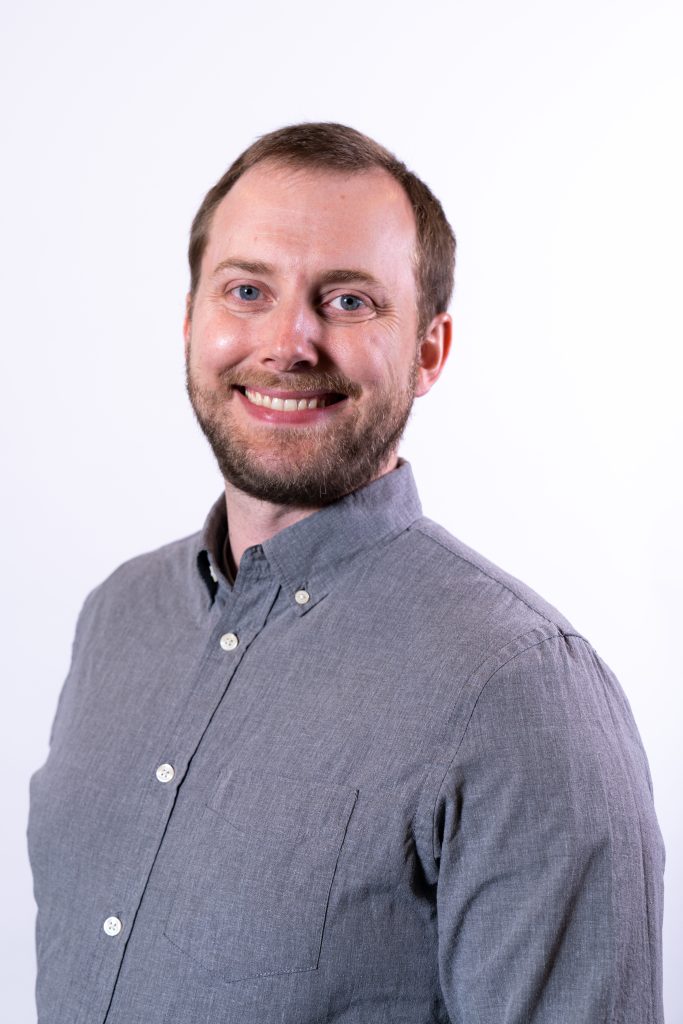
Passive investing can move people toward financial freedom and away from trading time for money. This is precisely what Seth Bradley has done. He talks with Jim Pfeifer about committing to investing 100% to elevate it from a side hustle to a lucrative business. It is difficult to leave your job without knowing the steps to take and the rules involved in real estate and other passive investments. In this episode, Seth Bradley, the Managing Partner of Law Capital Partners, shares his insights on how investors can educate themselves on those rules and gives tips for how he finds the right fit in people to work with in investing as well as a lawyer’s perspective on evaluating the deals. We don’t always want to read the entire document, especially when there are three typical documents to read in syndication. Seth provides tips on what to look for in the document to save time. Don’t miss this opportunity and dig into Seth’s perspective on investing!
—
Listen to the podcast here
Understanding The Rules Of Investing From The Passive Investing Attorney, Seth Bradley
I’m excited to have Seth Bradley with us. He’s a real estate entrepreneur and an expert at creating passive income. While working as a highly paid, busy professional, he has closed billions of dollars in real estate transactions as a real estate attorney, investor, and broker. Seth is the Managing Partner of Law Capital Partners, which is a private equity firm focused on value add real estate acquisitions and development.
—
Seth, welcome to the show.
Thanks so much for having me. I appreciate. I’m looking forward to this.
I’m looking forward to it as well. The first question we always ask is, what’s your journey? How did you get to where you are as an attorney, a syndicate, or in real estate? How did you find all of this? What was that journey like?
I’ll take it back pretty far, so feel free to stop me. I don’t want to go on too far. It took me a while to figure this game out. I started out thinking that I wanted to be a doctor. I grew up in a blue-collar family. My mom’s a retired school teacher. My dad’s a retired coal miner. It was instilled in me from the very beginning to work, trade your time for dollars, and what’s the best way that you can produce income by working.
Growing up, I thought, “What’s the best possible job that I could get?” To me, it was to become a doctor. That’s where I started. I went to med school. I went through all that. I went for a year and a half before I finally decided, “This is not for me,” and I dropped out. I got up in the middle of class and walked out because, mentally, I’ve had it. I was like, “I know this is not what I want to do,” so I left. It was a big decision. There were lots of hard conversations to have with the dean, my parents, and everyone else. Ultimately, it ended up being the right decision.
At that point, I didn’t know what I wanted to do. I went ahead and started getting my MBA. I knew I was interested in business and figured that would apply to anything, so I got my MBA. After I completed that, I went ahead and went to law school. That’s where I got my footing. I saw that even if I didn’t want to stay in the law, I could use that to be an entrepreneur and start my own business. The knowledge that I would gain from being an attorney would give me a leg up on a lot of other folks.
What happened then? You’re an attorney. How did you find real estate? I want to backtrack a minute. I love the part about trading time for money, and you figured out that medical school’s the place to go for that. You had the courage to stop and say, “This isn’t for me.” Before we go on to where you are and the real estate stuff, how did you get the courage? Once you’re in something like that, it’s incredibly hard to backtrack and say, “Sunk cost. I’m leaving. I’m doing something different.” Most people plow on through and then work for the next twenty years miserably.
It was a tough decision. I finished my first year. I knew towards the end of the first year that it wasn’t for me, but I took that summer and started looking around. I’m like, “What can I do? Do I want to finish and then figure it out? Do I want to transfer over to something that’s going to take a little bit less time? That may be to a dental school or something like that where I can still make good money, but it’s going to be fewer years taken away from my life.
Honestly, I didn’t figure it out. I started my second year, and finally, it got to the point where I said, “This is not what I want. This is not where I’m going to be. I know it took a lot to get here, but at some point, I’ve got to make the right decision for myself, not necessarily for other people and what other people expect.” It did take a good bit of courage and a good bit of gumption to say, “Let’s figure this out,” especially with no contingency plan.
I can relate to a lot of people who have a W-2 and they know they don’t want to do that. Maybe they’re investing passively to try to buy back some of that time. Maybe they’re starting a side hustle and trying to make that into their main hustle. Sometimes, you’ve got to take that leap of faith. It’s always going to be a side hustle until you say, “I’m going to fully commit 100%.” You can then take that and take it to the next level.
It must have been incredibly hard to stop med school in the middle of med school, but it’s probably easier to do it than to be fifteen years into a medical school or doctor career and then you quit. More people need to, when they’re in that space, think, “Is this, where I want to be?” You got your MBA. You got your law degree. Why real estate?
Luckily, I’ve always been interested in real estate. When I started practicing as an attorney, I got into real estate. I started off as a real estate attorney, and then I brought in the securities piece a little bit later. Real estate has always been part of my practice from day one. I’ve always been interested in real estate. As soon as I got that first big law firm job, I house act into a duplex as soon as I could afford a house payment. My wife and I lived in one half and we rented out the other. That paid our mortgage. It’s that BiggerPockets type of mentality. That’s how I got started reading BiggerPockets, Rich Dad Poor Dad, and some of that stuff and got into residential real estate.
I started buying single-family properties and small multifamilies of 1 to 2 units. I flipped a few properties and that sort of thing. Sometimes, you get lost in the woods. I’m closing these $100 million deals for other people, and then I’m sitting here messing around with single-family houses one at a time or fix and flips. I’m dealing with these contractors that’ll screw you over for $5,000. I had an epiphany. I was like, “What are you doing? You’re helping these people close these huge deals. You need to figure out how to get on that side of the table or on the equity side of the table.” That was a mindset shift. Sometimes, you get stuck in that small mindset.
I had to take a step back, look, and say, “I’m sophisticated enough to be able to close these larger deals for other people. Why can’t I do it for myself?” That’s when I started looking into syndications. I was familiar with it but didn’t know from an operator’s perspective. I only knew from an attorney’s perspective. Those are two different lenses to see it.
I started talking to people, networking, and figuring out how I could make my first move. I was told time after time, “Invest passively first, see how it goes, and see how you’re treated as a passive investor so you can learn that perspective. If you like it and still want to transition over to active, then you can do that. If you don’t, which a lot of people are like, “That’s a lot of work. I’m going to keep investing passively and you can keep doing what you’re doing and invest passively.” I did that. I’ve invested passively in a number of deals and eventually made my way over to the active side. I do active and passive investing.

You’re probably the first lawyer I’ve heard say they found syndications from watching their clients. I hear that from accountants and CPAs all the time when they see their wealthy clients and all the money they’re making from real estate. They go, “Maybe I should look into real estate.” Financial advisors have that same path as well. Some of those professions, you stumble into it.
People said, “Invest passively first.” I did the same thing. I wanted to be a syndicator. I didn’t even invest passively yet. I went to a seminar on syndication. I’m like, “I want to be on the passive side.” That was pretty easy for me. Talk about your legal background. How does that help you as a syndicator or as an actual operator of these deals? When you were working on the legal side, you knew all of that stuff, so you got to see the syndications in action. How does it help you become a better syndicator to have a legal background?
I’ll comment quickly on the first time you heard that from an attorney. Securities is a very specialized type of law, so there are not a ton of securities attorneys. There are more real estate attorneys. There are more corporate attorneys. Only a small subsection of those folks are securities attorneys. Even a smaller portion do real estate because there are other types of securities. There’s not going to be too many people that get exposure to those types of clients to where they’re like, “Maybe I should do that.”
That’s one benefit right there of being an attorney. It’s being exposed to those deals, seeing the liabilities, seeing the risks, and seeing deals through that lens. It’s also seeing the results of things that you shouldn’t be doing and what can happen if things go wrong. That has helped me immensely. It’s also helped me get my foot in the door, honestly, with a lot of well-seasoned syndicators on the operating side.
By being a securities attorney, they’re like, “You are sophisticated. You know what I’m talking about. We speak the same language.” Starting off trying to get to that active side, it was easy for me to get my foot in the door because I already knew the language. I knew people in the industry. I knew how these deals worked.
In your role as an operator, syndicator, and attorney, you must see a bunch of deals and a bunch of different types of operations. What do you think are some of the big issues in passive real estate investing, either problems or opportunities?
I’m not going to speak on specific folks, but you’ve seen it as well as I have. It’s been an explosion in the space in the last couple of years. You have all these new people that are coming onto the space. They watch a YouTube video. They take a course. They do something like that, and all of a sudden, they’re like, “I’m a syndicator. I’m going to raise capital. I’m going to do all of these things,” but they have no track record. They have no experience. A lot of them don’t even have a business background. That’s fine as far as you can get experience, but you’ve got to start somewhere.
The thing is, if you’re going to be that person or that beginner that’s going to jump right into raising $1 million or raising $10 million, which is difficult to do, you need to find teammates. You need to find people with a track record. Those are people that can show you the way. A lot of times, that’s not happening. A lot of times, it’s people that are starting. This is their first deal and they are the lead sponsor. They don’t know anything about anything.
Lots of times, they don’t even realize that they’re selling security. They don’t realize that there are rules to raising capital and you cannot take somebody’s money and put it into your deal. There are rules and regulations you have to follow in order to do something like that because they are protections for investors. They don’t even know that those exist. There are countless times when I peruse different Facebook groups and things like that. I go to in-person meetups and people have no clue about any securities laws or that there are any laws in place at all.
[bctt tweet=”There are rules to raising capital. You cannot just take somebody’s money and put it into your deal because there are protections for investors.” via=”no”]
The security and the SEC stuff, all of that is complicated. That’s why we have attorneys. I don’t want to jump into any of that stuff. Do you see that as getting in the way? Is that a problem for passive investors if the deal they’re investing in isn’t properly structured or is that more of a problem for the operator?
There are a couple of different things. The operators that are inexperienced are an issue for past investors. A lot of the folks tuning in to your show are probably pretty seasoned or they’ve invested in a few deals so they know what to look for. They ask the right questions. For a lot of these folks, this might be their first passive investment. If they’re investing in a deal for the first time with a brand new syndicator who has not operated a deal and doesn’t have a track record, that’s a risky deal. There’s a lot of risk on the table for someone who’s starting out. A lot of times, you don’t realize that because it’s your first deal and you don’t know any better. It happens all the time.
From a syndicator’s experience, it is also risky. If you’re not following the right rules and the right laws and you’re not aware, and you didn’t hire a securities attorney to get involved, then you’re putting yourself at risk. If you tank that deal, what’s going to happen? You’re going to get sued is what’s going to happen.
I won’t say I’ve seen it, but I have heard that there are predatory passive investors who look for syndicators who don’t know the laws and how to raise capital correctly. They’ll get involved in those deals because they know on the backend, if they get screwed and lose their money, they can sue them because they didn’t raise capital the correct way. I haven’t seen that firsthand, but I have heard that it can happen, which is very interesting. It sounds pretty risky to me from a passive investor perspective, too. It’s a pretty interesting take.
I would prefer to find good operators and invest with them. You’re an attorney. I cannot have you on this show without asking a couple of these questions. Otherwise, my audience will leave me. The operating agreement, PPM, and subscription documents are the three typical documents you get in syndication.
The one thing I do is anything in capital letters, I ignore. That’s probably not the best strategy, but that’s one way that I get through these. Tell me. What do I need to look for in each of those documents? I don’t want to read the whole thing. I want to read some paragraphs here and there. What are the top things I need to look for in each of those documents?
Taking all three as a whole, always understand that the operating agreement is a legally binding document. The subscription agreement is as well, but the operating agreement is the legal document that will supersede everything else. Your PPM is a legal document, but it’s a marketing piece. It should be written in relatively plain language so that you understand from a passive investor side what you’re getting yourself into. It’s going to lay out all the deal parameters, what kind of projected returns you’re going to get, who the operators are, what’s their track record, what the waterfall looks like, and all those sorts of things.
The point of the PPM is to explain the operating agreement in plain language. It should break down what you’re supposed to know in the operating agreement to a certain extent in plain language. It is so you can understand what kind of investment you’re getting yourself into. The PPM, to me, from an attorney’s perspective, is not as important as the operating agreement.

If there are things that are different in the PPM than the operating agreement, it’s a little bit of an issue for the sponsor. If something happens down the line and they get sued, an investor might say, “The PPM says this and your offering agreement says this. I went by what you told me in the PPM.” You’re going to have a little bit of an issue there. What controls is what’s in the operating agreement.
The things to look for in the operating agreement include your voting rights, typically from a passive investor standpoint. You don’t want voting rights, first of all, because you don’t want to have that liability that protects you as a passive investor. If the group gets sued or something happens at the property, the management gets sued, but the past investors don’t because they’re shielded from liability.
You need to see what your voting rights are. They should be limited. Maybe they’re limited to voting out the manager if they’re not doing a very good job. It might be a supermajority. It might be 67%, 75%, or something like that. There should be some way to get the manager out if they’re doing a terrible job. It has to be a bad job, fraud, misrepresentation, or something like that. Some sponsors build into their documents that you can vote on a refinance or a sale. I don’t suggest that to the sponsors that I represent because I don’t want to keep control over something that big, but you can look for something like that. Voting rights are something you should pay attention to.
Another thing you should check out is capital calls. If there is a capital call, what are your rights as a passive investor? Is it mandatory or is it not? Who decides that? Does the manager decide that, or is there a vote? It goes back to the voting piece. If you have to pony up more money to stay in the deal or keep your equity percentage, that’s pretty important. You need to know the rules behind that.
The third part is how much you pay and how you get paid. Make sure the fees line up in the operating agreement with your understanding of the deal. The waterfall is important. How do you get paid, and in what order? After that primary debt, if there is any, who gets paid what? Do you get that preferred return before or after even an asset management fee or something like that? Who gets paid what, and in what order? The waterfall piece can get a little bit complicated. In my opinion, that’s the one piece that you may want to have your attorney take a look at to give a quick glance over to be like, “What does this mean? When do I get paid?”
The PPM and the items that you said are the things that I generally look at. I was feeling pretty good about that, but I don’t necessarily look at those in the operating agreement. That’s huge for me to change how I’m doing things. That’s fantastic information. I’d like to pivot from the attorney that we were talking to and talk to the operator-syndicator. What kind of asset classes are you focused on
Traditionally, it is multifamily. I love multifamily as an asset class and as a long-term play. Going back to how this syndication industry has exploded in the last couple of years, multifamily has gotten very crowded in all the good markets, all the decent markets, and even the bad markets. It’s tough to find good deals.
When you start seeing projected returns that look similar to the ones that you saw a couple of years ago, that’s when you need to dig into that sponsor’s underwriting and see how because there’s no way. A deal that you invested in a couple of years ago should have had much higher projected returns than this time.
It’s multifamily, traditionally. We’re always underwriting multifamily deals and trying to make those pencils, but they’re few and far between at this point. We’ve pivoted to a few other asset types that we like, including RV parks, where the spread is much higher. We took down a few of those in 2022. You have less competition and bigger spreads. It can be a long-term play, too, because they cashflow so much.
With certain investors, I’ve seen a mindset shift where originally, it was, “I need my money back as soon as possible. If you can sell this property, renovate it, lease it up, and sell it in 2 or 3 years, give me my money back.” There are other investors that are starting to see that even from a passive side, there is still a lot of work to go out, find a new deal, vet a sponsor, and vet the deal. They’re like, “Why don’t you find me a deal where I can stay in it for ten years or an infinite amount of time?” Those deals and those types of past investors looking for those deals are more often seen than they used to be. These RV parks fit that bill because they cashflow so much. It’s not quite as dependent on this value add play to make any pencil.
Talk about then the RV parks. How do you go from multifamily to RV parks? What do you tell your investors that, “I’m going into this.” What’s your expertise? What we always say is, “We don’t want to be anybody’s Guinea pig. If you’re switching asset classes, I’ll see you later. I’ll come back after you have a track record.” How do you get over that hump? Also, why do RV parks have such heavy cashflow?
You partner with people with a track record. You find experts in that field. RV parks are a very specialized industry. If you talk to a novice, they’ll lump in RV parks and mobile home parks together, but they’re two different asset types depending on the type of RV park you take down. You partner with experts. When I’m on a deal, I either have someone on the team who has the experience and has that track record in RV park specifically. If that’s not available and we still find a great deal, where can we find that track record of success? Where can we find that expertise?
There are RV park consultants that you can pay to be part of your team either by the hour or you can pay them a small ongoing fee to consult with you. If you’re going to build out some new sites, then they’ll help you out and figure out the layout. If you’re trying to optimize your daily rates and your weekly rates, they’ll help you optimize those things. A lot of real estate does overlap. A lot of that same knowledge applies to multifamily and RV parks. You need to find someone that has that specialized piece to take you to that next level.
[bctt tweet=”Find those RV park consultants to consult with you if you build new sites. They’ll help you figure out the layout if you’re trying to optimize.” via=”no”]
I was going to ask, what are the markets that you look at for RV parks? Are they similar to the multifamily markets you’re looking in, or are they different?
They’re very different. Depending on the type of park you’re looking for, there are long-term parks, which are month-to-month tenants, which start looking much more like a mobile home park. There are parks that are called transient parks. They are more geared towards daily and weekly rentals where people are either passing through or maybe they’re spending their vacation there.
We look for a park that might be long-term but has short-term potential. It’s almost like taking a single-family long-term rental house and turning it into an Airbnb. Your rates are going to go way up. Instead of charging $300 a month to park your RV for a month, you can charge $50 a day. The key to that is demand.
You can build an RV park about anywhere. You got to be careful when you’re adding sites or you’re buying an RV property. You got to figure out what’s the demand in the area. You need to have some sort of a draw. That’s the big thing. You’re like, “If I turn this into a nightly or weekly park, why are people going to pay to be here? It can be something as small as an Indian casino or some sort of body of water. It can be a lake, an ocean, or anything that’s close that’s going to draw people to stay for 1 week or 2 weeks, or a few nights. That’s what you look for.
How do you figure out if there’s demand?
You have to see what’s around you. Honestly, you have to go visit this park. It’s not one of those properties where you can, “I know what Nashville looks like. I’ve been to Nashville ten times. This park’s on the west side of Nashville.” You’ve got to go visit the park because you got to see what’s immediately around it. You’ve got to visit the other RV parks that are near it to see what the competition is charging, what the conditions of their park are, and things like that.
To gauge the demand, you can do it that way by going and seeing if the other parks are full around it. The other thing you can do is you can put out an ad. You put out an ad on Facebook, Instagram, or Google and gauge what kind of demand you get from those ads for your park. You almost pretend as if you own it already. Do it for a couple of weeks and see what kind of demand you get.
Pivoting again from the RV parks, one of the most important things and what we focus on Left Field Investors is finding quality sponsors and operators to invest with. It’s mostly more important than the deal because if you don’t have a quality partner, it doesn’t matter how good the deal is. That’s how we think of it. How do you vet a sponsor to make sure they’re experienced and knowledgeable?
The first step, especially because there are so many new sponsors involved, is to figure out who you’re in bed with or who you’re going to get in bed with. You need to figure out if they’re the lead sponsor or if they’re a capital raiser. I don’t like to say capital raiser because it’s so important, but let’s say they’re not going to be the on-the-ground operator. Figure out who’s going to be your on-the-ground operator. That’s the person you need to vet. You need to figure out what their track record is and follow up with that track record. Go into the property records and see if they own it or if one of the entities that they own owns it.
That’s what makes a group like yours so powerful because even though there are so many new people coming into play, everybody knows everybody. Everybody knows somebody that’s investing in somebody else’s deal. A bad reputation travels quickly here. It’s networking and making sure you have a call with a person that’s going to be operating in the deal or at least their investor relations team. It’s o see if you get a good feeling about whether they are sophisticated, whether they’re doing what they say they’re going to do, and that sort of thing with their other properties.
I’ve heard you say that it’s important to like the sponsor or the person you’re investing with. My question is, why is that important? If they’re making me money, do I care if they’re a jerk?
I suppose not, to a certain extent. Ultimately, you want them to make you money, but I look at it as a business deal. When I get into business with somebody, I want to like that person. You’re going to be in this deal presumably for 2 to 10 years. If you’re going to have ongoing communications with them, it depends on what kind of relationship you have with them, whether it’s via text, phone call, email, or none of the above.
For me, there are a lot of deals to invest in out there. I want to invest with somebody that I like and I have a good gut feeling about. I’m in a few different businesses as well. You get that feeling about people that it’s deep in the pit of your stomach. You’re like, “There’s something off from the way that he’s talking versus the way that I feel about them.” That’s usually something you need to trust. That’s the gut instinct that they’re not being 100% transparent with you.
That’s great advice because you don’t want to do business with people that you don’t like. It makes it uncomfortable and difficult. There are plenty of operators out there. We tell people, “If someone’s offering a guarantee or if certain conditions exist, move on and go to the next person because there’s plenty out there.”
It’s the same if you were dealing with somebody and they have great returns and a great business, but they’re jerks. If you don’t want to deal with them, then why would you invest your money in them? I completely agree with that. That’s awesome advice. I want to talk a little bit about the debt markets. I know that you’re not finding multifamily deals. Maybe you’re concentrating a little bit more on the RV parks. How does the debt work for RV parks? How do you see debt changing in the future?
To comment on the RV parks, it’s very similar. There are fewer banks that are willing to finance RV parks. Typically, we’re finding community banks and smaller local banks to finance those. You’re still going to get 60% to 75% debt on those properties. It’s still pretty good, which was a surprise to me. I thought we were going to have to leverage it much lower, like 50% or something like that. I was surprised. You have to find the right broker that’s specific to the RV park industry. They know what small lenders will loan on those types of parks.

Generally speaking, the debt market is a mess. That’s what’s making these deals not work. The debt is so expensive. The seller’s pricing is not adjusted enough. It has adjusted, but it hasn’t adjusted enough to make up for those high-interest rates. The only deals that I see getting done on a regular basis towards the end of the first quarter of 2023 are loan assumptions, seller financing, or some combination of that. Unless the seller is in a bad place and willing to discount the property much more than they want, then these deals are not going through.
That makes sense. Loan assumptions are when you assume the loan of the seller. Seller financing is when the seller acts as the bank, so everyone understands what we’re talking about. Talking about banks, the Silicon Valley Bank folded. There are other mid-major banks that are in trouble or have also had the same issue. Is that going to affect, do you think, mortgage rates or operators?
When you take out a loan, if the bank goes out of business, I don’t know how that works. Maybe you don’t owe them the money anymore, so maybe that’s a good thing. It doesn’t seem like it’s ever a good thing to have a bank go out of business. How do you think that’s going to affect debt markets and anything like that?
I don’t think it’s going to have a massive impact, but it certainly has a negative impact on the general feeling about the markets. Even though SVB might be a one-off, it is still one more indicator to the market, to people, and to investors that are like, “Maybe I should hold onto my cash. Maybe I shouldn’t be investing. Maybe I should stockpile my money instead of keeping it moving.” It certainly impacts everything, including commercial real estate.
The last question I always ask is, what’s a great podcast you listen to? You cannot use The Passive Income Attorney Podcast because that’s your podcast. What’s another podcast you like to listen to?
The one at the top of my list is The Game by Alex Hormozi. It’s not a real estate podcast. It’s a business podcast. He’s an incredible guy. He’s a gym guy. He has developed into this overall business genius. It’s incredible. I would recommend to everyone out there to give it a listen.
I’ve never heard of that one. That’s two days in a row that I’ve gotten new podcasts to listen to from guests. That’s fantastic. Thank you for that. Finally, if people want to reach out to you, what’s the best way of doing that? If you want to share anything with the community, this would be a great time to do that as well.
I’m all over social media. You can find me anywhere. You can either look me up, Seth Bradley, or @ThePassiveIncomeAttorney. You can find me on Instagram, Facebook, and LinkedIn. I’m on all of the above. I’m pretty easy to find. Feel free to reach out. Email me. That’s probably the best way to get ahold of me. It is Seth@LawCapitalPartners.com.
I do want to present your audience with a special announcement. I’ve got a new program called Passive Income Pro. You can find more information at PassiveIncomePro.io. It’s a course and mastermind specifically for passive investors. You can get up to speed on how to invest in syndication in four weeks or less if you want to.
It teaches you all the stuff you need to know, not the stuff you don’t. A lot of the information out there is geared towards sponsors and active investors that want to learn how to raise capital or how to find a deal and that sort of thing. This is geared specifically toward passive investors. You can find that at PassiveIncomePro.io. We have a 10% off code. You can use the code LEFTFIELD.
Thank you for that. We appreciate that. This has been fantastic. We appreciate having you. It’s like we had two guests because we had the attorneys start out and we had the syndicator finish up. That was fantastic. Thank you for being on the show.
I appreciate it. Thanks.
—
That was cool talking to Seth. It was like talking to two people at once because he has two roles as an attorney and as an operator. That’s awesome. Starting out, his family taught him to trade time for money, as so many people did. He figured out pretty quickly when he was in med school that that wasn’t what he wants to do.
We talked about his courage to change. I imagine that it was hard to go through a year and a half of med school and then say, “This is not for me.” That’s awesome that he was able to get out and then go do other stuff and find his niche and what he wanted to do in real estate. That was awesome.
There are so many rules to raising capital. That’s what makes being an attorney at the same time you’re doing this capital raising and being a syndicator. That gives him an advantage because he knows what the rules are. He can make sure that he’s following them. He can also be a little bit more aggressive because he knows the rules and knows when he will and won’t get himself into trouble. I like that balance there.
In the conversation about the operating agreement, I always look at the PPM. I glance over the operating agreement. I am not the most thorough on this stuff, admittedly. I should be better at it. We all have our strengths, and that is not one of mine.
Knowing that the operating agreement is the main thing to look at, I usually go and check the PPM for a few of the items he talked about, like capital calls, voting, and the waterfall. I’ll check both. I’ll check the operating agreement and the PPM. I’ll make sure both of those match each other and match the pitch deck coming from the operators. That was helpful for me.
I also liked his answer when I talked to him about changing asset classes. We don’t like to be Guinea pigs. If we are Guinea pigs and go in with our eyes wide open, I like to do it at a lower minim than they usually offer. What he said is he was open and easy about it. Partner with an expert. That makes sense to me.
If you want to get into RV parks and you’re not an RV park operator and don’t have any experience, rather than go trying to be an RV park operator, hire a consultant. Partner with someone that has experience. I love that attitude. It wasn’t like it was some big guess. It seemed obvious. You partner with an expert. I like Seth. It was great talking to him. We’re going to see if there are ways we can do business with each other moving forward. That’s it for this time. We’ll see you next time in the left field.
Important Links
- Law Capital Partners
- Rich Dad Poor Dad
- The Passive Income Attorney Podcast
- The Game
- Instagram – Seth Bradley
- Facebook – Seth Bradley
- LinkedIn – Seth Bradley
- Seth@LawCapitalPartners.com.
- PassiveIncomePro.io
Our sponsor, Tribevest provides the easiest way to form, fund, and manage your Investor Tribe with people you know, like, and trust. Tribevest is the Investor Tribe management platform of choice for Jim Pfeifer and the Left Field Investors’ Community.
Tribevest is a strategic partner and sponsor of Passive Investing from Left Field.

